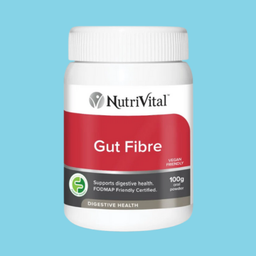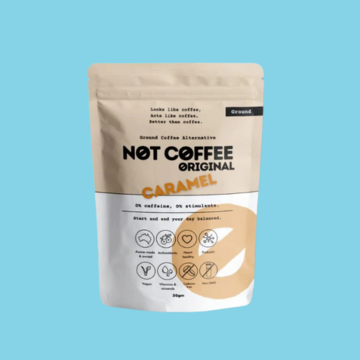Iodine is an essential trace element. The majority of iodine in our body is found in the thyroid gland. Adequate maternal iodine is vital for brain and nervous system development in the unborn baby.
Why you may need iodine
Hypothyroidism (under-active thyroid) – iodine is required by the thyroid gland (located at the front of your neck) for the synthesis of thyroid hormones, thyroxine (T4) and triiodothyronine (T3). These hormones regulate your body temperature, metabolic rate, reproduction, growth and development. Another hormone released by your pituitary called thyroid stimulating hormone (TSH), regulates plasma concentrations of T4 and T3.
How much to use
Recommended Daily Intake (RDI)
Adults over 19 years: 150mcg daily
Pregnancy: 220mcg daily
Breastfeeding: 270mcg daily
Children 9-13 years: 120mcg daily
Children under 14-18 years: 150mcg daily
Symptoms of deficiency
Iodine deficiency is on the increase again. Early in the twentieth century, iodine was added to salt to improve deficiency. Nowadays many people choose for health reasons, not to add salt, or choose salt mixes without added iodine.
An iodine deficiency will cause fatigue, weight gain, constipation, sluggishness, cold hands and feet, and slow metabolism.
Goiter – is the main and physically obvious symptom of iodine deficiency. It looks like a large bulge at the bottom of your neck and may affect your breathing. As iodine levels fall so do your thyroid hormones. Your body reacts by releasing more TSH in an attempt to speed up iodine uptake by the thyroid. If iodine intake is still low, the cells in your thyroid gland also kick in and enlarge to increase its chances of taking up whatever iodine is around.
Food sources
The best dietary food sources include – kelp, nori, wakame, tuna and other seafood, eggs, yoghurt, banana, navy beans, strawberries, corn, cranberries, green beans, spirulina and Himalayan salt.
Other reasons why you may need more
Women need a higher intake during pregnancy and while breastfeeding. During pregnancy iodine deficiency can interfere with the normal development of the fetus leading to the infant being born with mental and physical disabilities, a condition called cretinism.
Safety notes
- Just to confuse things slightly – too much iodine (greater than 2mg daily) can also cause an enlarged thyroid. It may induce hyperthyroidism (an overactive thyroid) and/or hypothyroidism. Other symptoms to look out for include – burning sensation in the mouth or throat, weight loss, irritability, diarrhea, gastric irritation, and increased salivation.
- A ‘toxic’ goiter can also develop if you eat too many vegetables such as cabbage, turnips, legumes, cassava, and Brussel sprouts. They contain goitrogens, which is an antithyroid substance that inhibits iodine transport to the thyroid.
- Always consult your healthcare professional when supplementing with high doses of iodine or if you have a thyroid condition.

